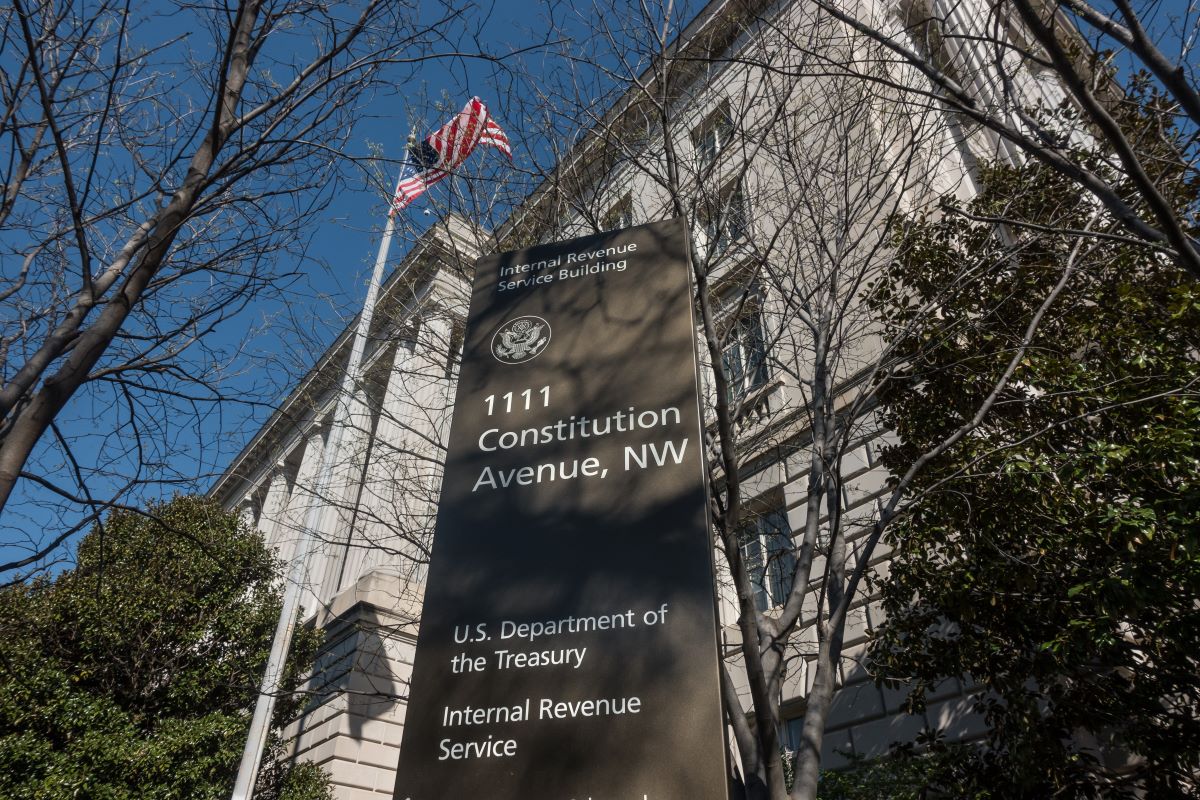The IRS has announced a plan to increase audits as a result of an uptick in tax fraud. Some taxpayers are more likely to be targeted than others. Here’s how to know where you stand.
IRS Promises Operational Changes

After the IRS received $80 million to improve its operations, the agency has promised significant changes that it says will increase revenue and improve the overall IRS experience.
Audits a Main Focus

The biggest change will involve the number of audits performed by the IRS each year. Danny Werfel, IRS commissioner, explained the details of the new plan to improve the agency.
Responding to “Years of Underfunding”

After “years of underfunding,” Werfel said the IRS’s performance had suffered. In response and with the help of the $80 million endowment, the plan is to spend three years making significant changes to its operations.
Low- and Middle-Class Taxpayers Unaffected

The increase in audits will target a specific subset of taxpayers. Luckily for most Americans, those making under $400,000 per year will not be at any increased risk of being audited.
More Audits for the Rich

However, for taxpayers with income higher than that threshold and large companies, audits will come at up to ten times the frequency as before.
Rates of Increased Audits

For corporations who hold more than a quarter of a million dollars in assets, the rate of audits will triple. Partnerships which have assets in excess of $10 million will be audited at ten times the current rate.
Wealthy Individuals Will See 50% Increase

Finally, American taxpayers who earn over $10 million will have 50% more audits. The IRS was clear in its announcement that taxpayers outside of those groups would not be audited more frequently.
Commissioner Promises Non-Wealthy Individuals and Small Businesses Will Not Be Targeted

“There is no new wave of audits coming from middle- and low-income [individuals], coming from mom and pops. That’s not in our plans,” Commissioner Werfel said.
IRS Intends to Send a Message

Werfel said the idea is to send a message to wealthy individuals and corporations that they are being more heavily scrutinized to attempt to curb fraudulent filing.
“It Sets an Important Tone and Message”

“It sets an important tone and message for complex filers, high-wealth filers, that this is our focus area,” Werfel said.
IRS to Increase Hiring Efforts

Another area of focus for the IRS with the new funding is in hiring new talent to fill seats that have been empty for years.
12,000 Seats to Be Filled

According to Werfel, there is a plan to increase employment numbers by approximately another 12,000 hires. The IRS hopes to employ a total of 102,500 people by the end of the effort.
“That Number Won’t Even Be a Record High”

“That number won’t even be a record high for the IRS workforce; it’s well below the numbers from the 1980s and early 1990s,” Werfel noted.
An Attempt to Clear Up Myths

This clarification was necessary after the IRS became the subject of political posturing and pervasive myths surrounding its future.
Unfounded Rumors

Following the $80 million award that was given to the IRS as a result of the Inflation Reduction Act, there were Republicans behind rumors that the IRS planned to “supersize” itself with “87,000 new IRS agents to audit Walmart shoppers.”
Most New Hires Will Replace Retirees

Werfel made it clear that those rumors were unsubstantiated, and that the people the IRS plans to hire will be taking seats vacated by employees that have retired.
“This Should Put to Rest Any Misconception”

“This should put to rest any misconception about us bringing on 87,000 agents,” Werfel said.
Preparing for Changes

As the changes are rolled out, affected taxpayers should ensure they have their ducks in a row and prepare for an increased chance of an audit.
Relief for the Middle Class

For everyone else, you can rest easy knowing your odds of being audited are as low as ever. As the IRS prioritizes tax filing accuracy and fraud prevention, it recognizes that the issues do not lie with the middle and lower classes or small businesses.
Remote No More: 19 Companies Returning to the Office

As the pandemic wanes, companies are recalling remote workers back to the office, sparking debates on fairness, costs, and convenience. However, there are also notable productivity, coworking, and mental health benefits to consider. Feeling the effects of these changes? Remote No More: 19 Companies Returning to the Office
8 Costco Must Buys and 8 to Leave Behind

Ever wandered Costco’s aisles, questioning if that giant jar of pickles is a real bargain? Or debated buying tires where you get your rotisserie chicken? Welcome to the definitive guide to Costco shopping—a journey to save money, prevent regrets, and offer quirky insights into bulk buying. 8 Costco Must Buys and 8 to Leave Behind
23 Reasons Texas Is the Next Big Thing

Texas is becoming a beacon of opportunity, blending cultural heritage with economic growth. From its landscapes to its industries, the Lone Star State offers a dynamic lifestyle. Here are 23 reasons why Texas stands out, attracting entrepreneurs, artists, tech professionals, and families seeking new beginnings. 23 Reasons Texas Is the Next Big Thing
15 Top Sites to Sell Your Unwanted Goods Besides Craigslist

Selling your unwanted items can declutter your space and boost your income. While Craigslist is popular, there are many alternatives with unique features and wider audiences. Explore these 15 Craigslist alternatives for selling everything from furniture to electronics, finding the perfect platform to turn clutter into cash. 15 Top Sites to Sell Your Unwanted Goods Besides Craigslist
Work from Anywhere: 19 Companies Still Supporting Remote Work

Tired of commuting and craving work flexibility? You’re not alone. Many companies now offer remote work, benefiting both employees and employers. Ever wondered how this shift could enhance your work-life balance? Work from Anywhere: 19 Companies Still Supporting Remote Work
The post – IRS to Intensify Audits: Are You At Risk? – first appeared on Liberty & Wealth.
Featured Image Credit: Shutterstock / Bob Korn.
The content of this article is for informational purposes only and does not constitute or replace professional financial advice.

